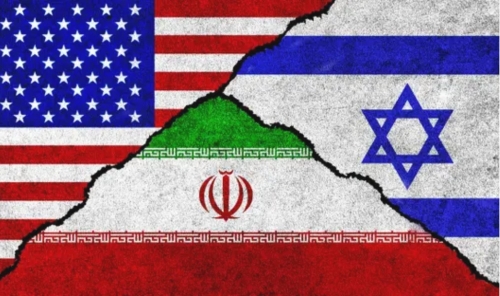US Intel Casts Doubt on Impact of Iran Strikes as Region Sees Fragile Ceasefire
TDT | Manama
Email : editor@newsofbahrain.com
As a fragile ceasefire between Iran and Israel enters its second day after a fierce 12-day conflict, new revelations from U.S. intelligence cast doubt on the long-term effectiveness of American airstrikes on Iran’s nuclear facilities.
Despite U.S. President Donald Trump's declaration that Iran’s nuclear capabilities had been “completely destroyed,” classified U.S. intelligence reports suggest the damage may have only set back the program by a few months.
Conflicting Claims on Nuclear Impact
In a press conference, Israeli military spokesperson Brigadier General Effie Defrin said Israel had delivered a “significant hit” to Iran’s nuclear program, claiming it could delay Iran’s efforts “by several years.” However, he cautioned that it was “still early to assess the full impact.”
Israeli Prime Minister Benjamin Netanyahu declared the 12-day war a “historic victory” and pledged to prevent Iran from rebuilding its nuclear capabilities.
Meanwhile, Iranian President Masoud Pezeshkian maintained that Iran will continue to assert its right to peaceful nuclear energy, defending the country's position under international law.
What US Intelligence Reports Say
According to unnamed U.S. officials cited by media outlets, preliminary intelligence assessments found that many of Iran’s critical centrifuges and enriched uranium stockpiles were not destroyed. Instead, the U.S. strikes mostly blocked access to facilities without demolishing the fortified underground structures.
These findings appeared to frustrate President Trump, who posted on Truth Social that “THE NUCLEAR SITES IN IRAN ARE COMPLETELY DESTROYED!”
Iran Responds Politically and Publicly
In a strong response to the strikes and what Iran perceives as international inaction, Iranian lawmakers voted to suspend cooperation with the International Atomic Energy Agency (IAEA). Parliamentary Speaker Mohammad Bagher Ghalibaf criticized the IAEA for failing to condemn the attacks, saying it had compromised its global credibility. The bill must still be approved by the Guardian Council.
Lives Lost and Mourning Ahead
Iran announced it will hold state funerals on Saturday for top commanders and scientists who died in the conflict. Among them is Hossein Salami, chief of the Revolutionary Guards, who was killed on the first day of fighting. He will be buried Thursday in central Iran.
Iran’s health ministry reported that 610 civilians were killed by Israeli strikes, while official Israeli figures say 28 people were killed in Iranian attacks.
Executions Spark New Tensions
Adding to the tense atmosphere, Iran’s judiciary confirmed the execution of three men—Idris Ali, Azad Shojai, and Rasoul Ahmad Rasoul—accused of spying for Israel and attempting to smuggle assassination tools into the country.
As both nations bury their dead and re-assess their strategies, the world watches closely—wondering if the current ceasefire will hold, and what comes next for the region’s already volatile nuclear future.
Related Posts

